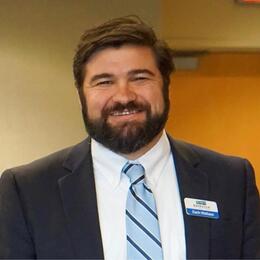***Update Sept. 3***
Good news! Since publishing our legislative wrap-up earlier this summer, lawmakers reconvened to vote on federal relief spending and included $2.1 million to support our state’s parks and trails. The allocation isn’t as much as we wanted, but it will go a long way in making sure parks remain safe and open to the public.
These special outdoor places have seen unprecedented use since the pandemic began and provide critical habitat for birds. Thanks to all Audubon advocates who wrote to their lawmakers in support of this funding.
***
The Covid-19 pandemic is keeping most of us at home, but that didn’t slow down Audubon advocates during the legislative session in Raleigh. We sent hundreds of emails about important conservation funding legislation, showed up in record numbers to Virtual Advocacy Day, met with lawmakers, and spoke up for birds.
Despite the unprecedented circumstances and projected budget shortfalls, our advocacy made a difference. For now, lawmakers have avoided deep cuts to the state’s conservation trust funds, which protect North Carolina’s special outdoor places—our parks, trails, and gamelands. And despite all that’s going on in Raleigh, Audubon also helped pass new native plants legislation that will result in more bird-friendly vegetation in towns and cities across North Carolina.
But the bigger story is the momentum Audubon advocates are building for bipartisan conservation and clean energy solutions into the future. Stay tuned for updates on our upcoming advocacy work, including Chapter Day on Aug. 17 (register now!). In the meantime, read on for a recap of what the past legislative session meant for birds.
Conservation Trust Funds
For now, lawmakers have not made cuts to recurring funding levels for the Clean Water Management Trust Fund (CWMTF) or the Parks and Recreation Trust Fund (PARTF). These funds are vital to protecting the places birds need now and in the future—nearly two-thirds of the land protected by the Clean Water Management Trust Fund is habitat identified as critically important to birds.
Because the state still hasn’t passed a biennium budget, both funds currently sit at their 2018 funding levels ($13.2 million for CWMTF and $16.2 million for PRTF). We are hopeful that our message and momentum from Advocacy Day will help grow these funds to $45 million each by 2022 as the state recovers from the pandemic.
One additional bright spot: A new law, Senate Bill 390, supported by the Land for Tomorrow and NC Forever Coalitions will put more money into the funds by dedicating 12.5 percent of the proceeds from state property sales to each fund.
Climate and Clean Energy
The extra short legislative session prevented lawmakers from considering any substantive clean energy or energy storage legislation this year. We’ll be working on a plan to advocate for clean energy solutions during next year’s legislative session, including promoting policy opportunities that emerge as part of the stakeholder process launched under Governor Cooper’s Climate Executive Order 80.
Heirs’ Property
Audubon began work on a new issue this session at the intersection of conservation, property rights, and family land loss. The issue, known as heirs’ property, occurs when family-owned land is passed down through generations, often without a will, giving many descendants an undivided interest in the land.
Anyone who inherits or purchases even a small interest in the land can potentially force other owners to sell. As a result, heirs’ property is a leading cause of involuntary land loss, especially for Black families.
This is a bird issue as well. Without clear title, heirs’ property owners are unable to access federal conservation funding that helps manage and restore bird habitat on private property.
Audubon staff, advocates, and coalition partners began engaging state lawmakers on this problem during this year’s session. Several lawmakers have expressed interest in sponsoring model legislation that fixes heirs’ property loopholes, protecting family landowners and the birds that depend on their property. Stay tuned for more on this issue as the next legislative session approaches.
Native Plants
Building on last year’s bill that makes native plants the default along state highways, Audubon partnered with Sen. Bill Rabon to pass a similar law this year requiring towns and cities to prioritize native plants along local roads that are funded by state money. House Bill 77 will result in more native grasses, shrubs, and vegetation in our state that provides food for birds and other wildlife.
Other Positive Developments
A new budget for the Department of Transportation includes tens of millions of dollars from the Volkswagen emissions settlement. When the budget is finalized, as House Bill 1087, the state will use the money to invest in electric buses and vehicles and build new charging stations across North Carolina. This funding will be a huge step in our state’s transition to a cleaner energy economy that’s good for birds and people.
A Hurricane Dorian Disaster Recovery bill, House Bill 1023, also includes more than $10 million to hire resilience managers that will help local governments develop resilience plans. These plans will help protect communities from storms and flooding and will likely include nature-based solutions that are good for birds and people, like habitat preservation and restoration.




